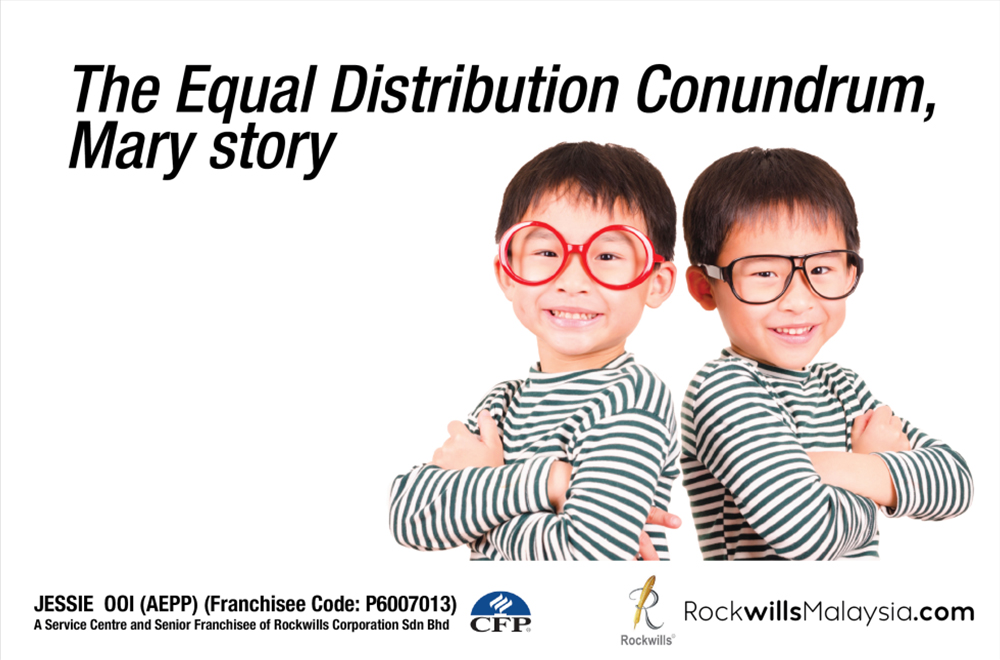“Mary (a fictitious name) was overjoyed when she gave birth to her twin baby boys, Alfred and Thomas, in 1993. There is no love as unconditional as a mother’s love. Mary always emphasized equality for her twins, providing them with equal love, food, clothes, and education.
Recently, Mary was diagnosed with Cervical Cancer, prompting her to create her will.
When I first met Mary, she told me: ‘I will distribute my entire estate equally among my twin sons because I love them both equally.’
Like many parents, she believed that distributing her estate equally among her children is the best solution, reflecting her sense of fairness and harmony.
However, is this always true?
Let us continue Mary’s story.
A week after she signed the will, I received another call from her.
Mary: ‘Jessie, I need to re-write my Will now. My eldest son Alfred and his wife are not satisfied with my decision to distribute the estate equally between him and his younger brother Thomas.’
It was a big shock to me because she had always claimed to have a strong family culture with mutual respect and harmony among all her children.
What went wrong with Mary’s decision?
Legally, there is nothing wrong with distributing her estate equally among all her children.
But Alfred and his wife felt uncomfortable because:
(1) They are the sole caregivers responsible for looking after Mary, particularly during her final stages of illness.
(2) Thomas is doing well financially and is financially independent, while they need financial support from Mary.
(3) Alfred has been influenced by his wife and believes he should receive a larger share of the estate compared to his younger brother Thomas.
Mary’s story taught us about the complexities of estate distribution among children. It’s essential to consider each child’s perspective and individual circumstances to ensure fairness and harmony in the family.
Encouraging open communication and fostering strong family bonds can help create a more united and understanding family dynamic.
It is always important to let your children understand your concern and your ‘WHY’ to distribute the estate equally among all children.
So, do you still think distributing estate EQUALLY is considered fair?
Plan Well + Live Well = End Well”

